Saint John's new deputy police chief plans to do foot patrols
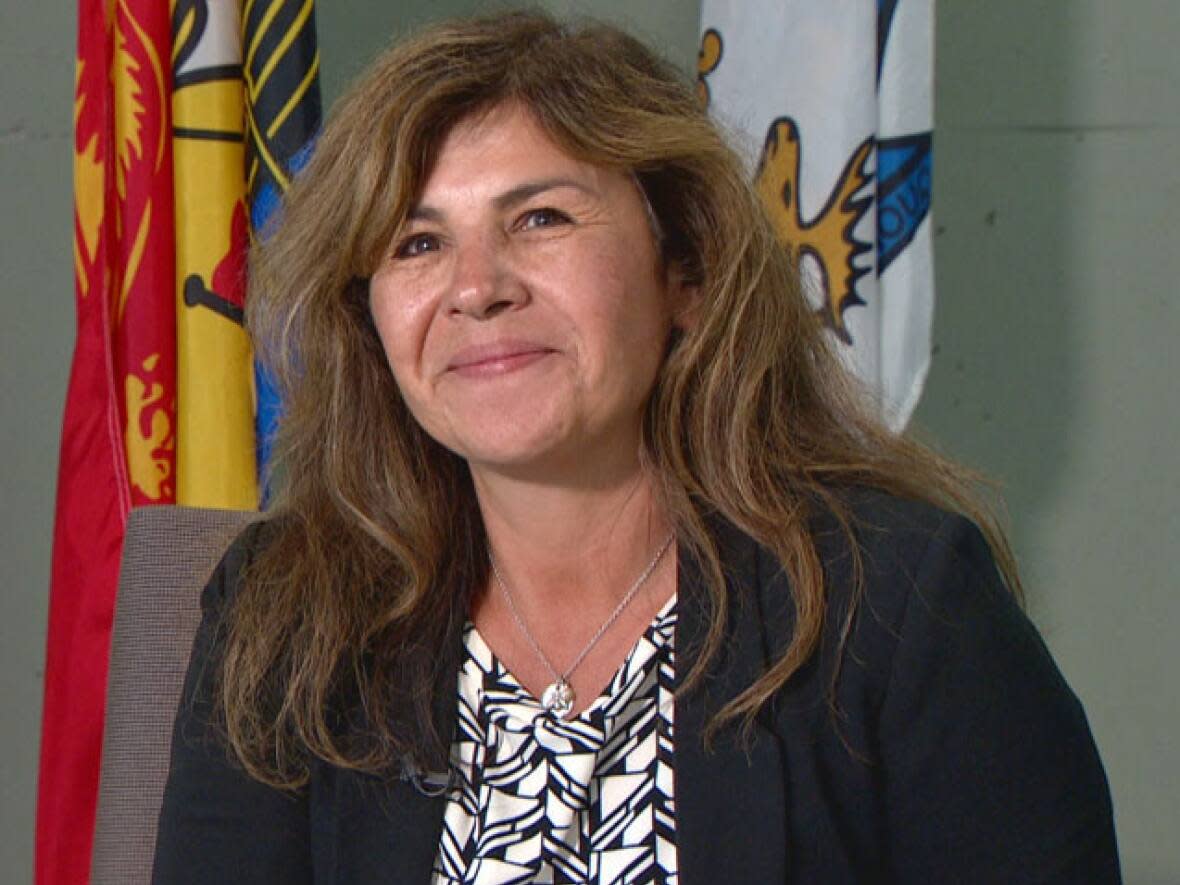
The Saint John Police Force's new deputy chief plans to do foot patrols.
Honey Dwyer, a retired RCMP superintendent, says she loves "being out there on the street."
"I enjoy listening to people's stories, but also hearing what do they want to see and change," she said.
"Police can't fix all the problems that are out there, but we can certainly work with the community to come up with solutions on moving forward. And it's together that we're going to make our community safer and healthier."
Dwyer, 53, was officially sworn into her new role on Monday, replacing Tony Hayes, who retired in April.
The mother of three and grandmother of one is the highest-ranking female police officer in the Saint John force's 173-year history.
"I can't say it's always been easy," she said of being a woman in a leadership role in policing.
And there's still "a long ways to go" to boost the number of women in many organizations.
"But with taking on these positions, it just paves the path for other women to know that, 'Yes, I can do this'."
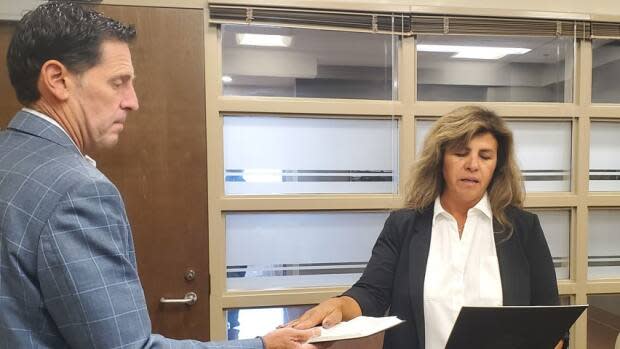
Dwyer is Indigenous, a member of the Lac La Ronge Indian Band, the largest First Nation in Saskatchewan.
Being Indigenous doesn't define who she is, she said. She didn't grow up on a First Nation, and her mother and grandmother both went to residential school, so she actually learned about her own culture and the culture of several other Indigenous communities largely through her various RCMP postings in Saskatchewan and Alberta.
But being Indigenous "certainly sets me in my role to be a leader for other Indigenous people who want to go into policing, who want to make a change."
In order to make that change, we have to be part of the change. - Honey Dwyer, Saint John's new deputy chief
A lot of issues have come out about Canada's history with Indigenous people, Dwyer said, citing residential schools as an example. The history of policing within Indigenous communities also "hasn't always been that great," she said.
"I think in order to make that change, we have to be part of the change and I believe I'm doing that and will continue."
'Wealth of experience'
In a statement, Chief Robert Bruce said Dwyer brings "extensive knowledge and a wealth of experience" to the position.
She served more than 27 years with the RCMP, most recently as superintendent, district operations commander in charge of the central district of Saskatchewan, overseeing 18 detachments, including North Battleford, which has one of the highest crime rates in Canada.
She has also worked in Indigenous policing, national security, drug enforcement, frontline policing, community policing, in the operational strategy branch and training branch, and served as detachment commander and respectful workplace co-ordinator.
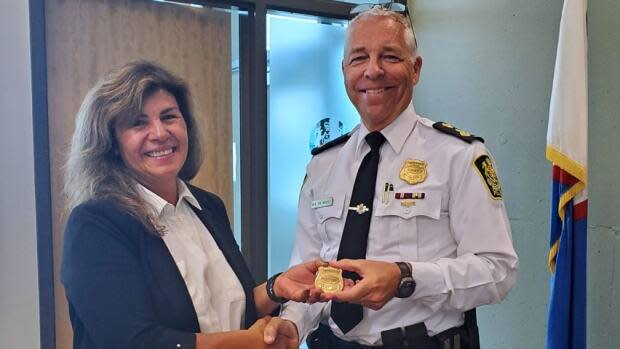
"Saint John Police were looking for a progressive, community-oriented leader whose values, vision and professional experience aligned with our vision/mission/leadership principles and strategic plan," Bruce said. "We found that in Deputy Chief Dwyer," following a two-month Canada-wide search.
"We are very excited about having her joining our team. I believe she will both enhance and enrich our department and our service delivery model."
Building trust, tackling issues
Dwyer joins the force just as it undertakes a five-year strategic plan that places high value on community policing and building trust.
Trust can't be built overnight, she said. It takes transparency and communication.
One of the strongest assets she believes she brings to the role is her ability to build relationships, she said, based on her experience of working in numerous communities.
"We have to remember the police work for the community. We have to work together. And the community knows the community. They know what the issues are and they have a lot of good solutions."
She looks forward to working with the adviser group and community action group the chief has already established, she said, as well as other community partners and stakeholders to tackle some of the city's big issues.
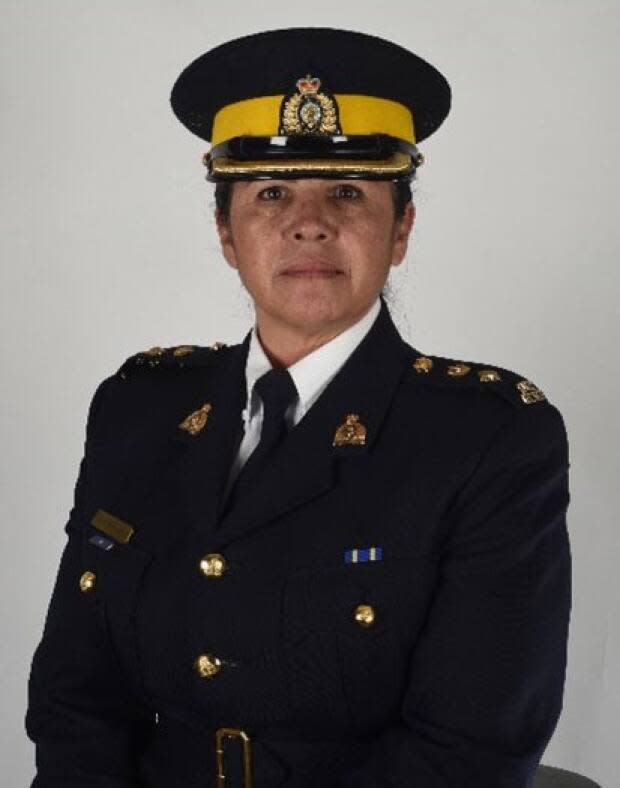
Dwyer believes those include homelessness, drug abuse and mental health — the same issues every community across Canada is facing right now, whether it's small Indigenous communities or big cities like Toronto.
Addressing those will help bring crime rates down, she said.
"That's probably going to be the biggest challenge, but it's not unattainable if we all work together."
Seeks new recruits
Police recruitment is another challenge, which also is not unique to Saint John, said Dwyer.
She pointed to the pandemic as being partly to blame, along with "a lot of negative situations" and "negative media attention" toward policing, which have deterred people from wanting to become a police officer.
Dwyer acknowledges there can be some "not positive" times for police. But she contends they are outweighed by the positives that come with serving a community.
"Maybe we just have to get out there and encourage people that, you know what, this is a career they can be proud of. I know I'm proud to serve."
Police can overcome any negative perceptions through their work, said Dwyer. "Walk the talk," she said, adding that "99 per cent" of officers everywhere are doing their best and people shouldn't "paint everybody with the same paint brush."
"Will it change everybody's mind and their opinions? No. Some people will always have their thoughts.
'But all we can do is keep moving forward and doing that and giving 100 per cent."
Systemic racism review
For the last two years, Indigenous leaders in New Brunswick have called on the provincial government to launch a public inquiry into systemic racism against Indigenous peoples in criminal justice and policing.
New Brunswick's commissioner on systemic racism was poised to publicly call on the government to launch an inquiry this past spring. But Manju Varma's plan came to a halt after an April 13 meeting with Premier Blaine Higgs and Aboriginal Affairs Minister Arlene Dunn.
Dwyer said she doesn't know all the background, but the topic has been raised across the country over the past couple of years.
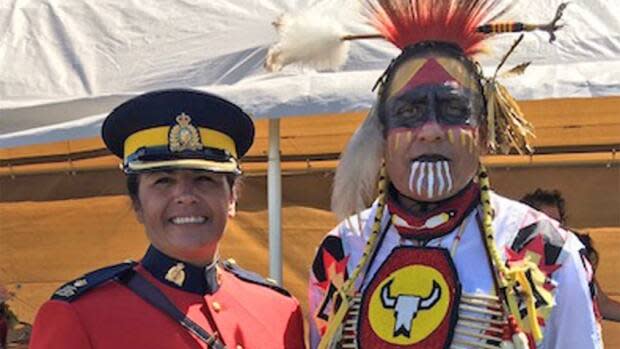
"Looking into what's wrong and what needs to be changed, I don't see it as a negative. There's always room for improvement."
Sometimes policies were put in place many years ago and need to "change with the times," she said.
"I support any changes that make any of our policies better for the communities that we serve."


